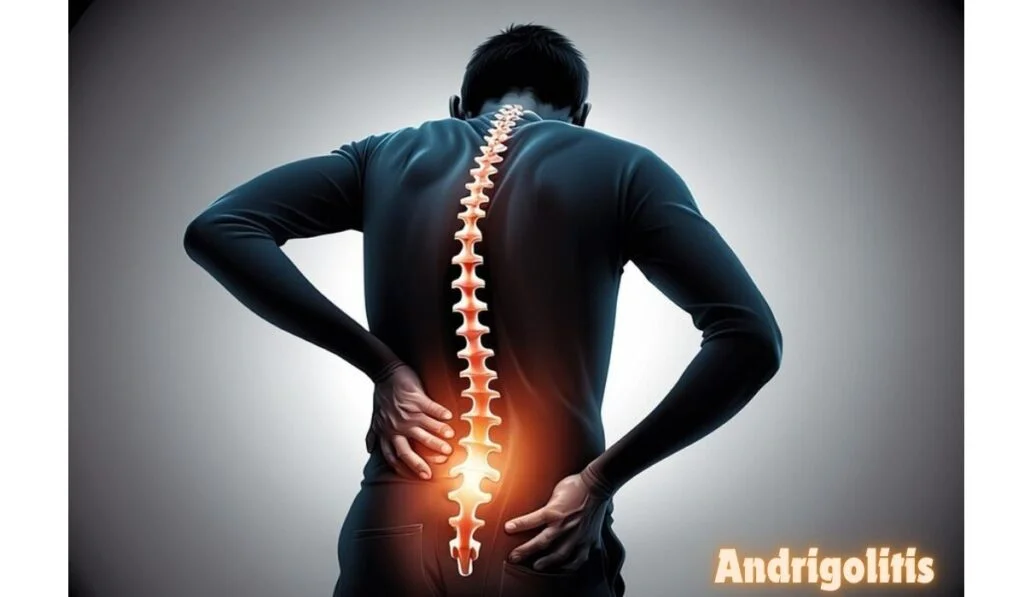Introduction
Andrigolitis is one of the terms that have been helpful in medical and psychological discussions even if it is still unknown by many people. The nature of this condition permits a wide variety of symptoms and difficulties, which manifest in people’s lives in different ways. This blog will be a culmination of what andrigolitis, symptoms it comes with, possible causes, and how it affects life.
What is andrigolitis?
Andrigolitis is a term that has been used to describe a situation where there are definite psychological and physiological manifestations. Although this particular term is not a well-known one in the current medical literature, its effects must be felt by everyone who is a victim of it. Face recognition is thought to stem from the term which amalgamates ‘andro’, which means male, and ‘golit’ which originates from Greek word meaning state or condition. Thus, andrigolitis could be considered to be a pathologic condition of the male personality itself and emotional and physical dysfunction.
Historical Context
The concept of andrigolitis, as you will recall, is not new; its origin can be anchored in early psychological framework that sought to address male mental health issues. Although, recently, people pay more attention to mental health and that is why andrigolitis have become famous and people should know more about them.
Symptoms of Andrigolitis
It is therefore important that there is full appreciation of the signs and symptoms of andrigolitis with a view to correcting the same. Symptoms can vary widely among individuals but often include:
Emotional Symptoms
Anxiety: In their discussions, many participants with andrigolitis claim the disorder results in occasional anxiety, especially during social events.
Depression: The condition possibly becomes a symptom in form of continuous feeling of sadness or hopelessness.
Mood swings: There may be unpredictable shift in emotions which have an influence over perceived interactions with people.
Physical Symptoms
Fatigue: Most patients complain of constant fatigue reduced by fatigability especially when subjected to emotional stress.
Sleep Disturbances:
A person can have insomnia or oversleeping and still be suffering from andrigolitis.
Physical Pain:
A proportion of customers suffer from symptoms of pain in their bodies, which they cannot explain, but may be due to stress.
Cognitive Symptoms
Concentration Issues: Impairment of concentration or short-term memory may not be unheard of.
Negative Thought Patterns: The performance level of the task may be influenced by such a presentation of thoughts, and moreover, there can be a tendency to focus on a number of negative thoughts that will eventually harm personal well-being.
Causes of Andrigolitis
The causes of andrigolitis are diverse and tend to be sensitive to changes in some factors. Knowledge of these causes will assist in treatment and management since it will be understood clearly.
Biological Factors
This paper explores the evidence that the course of andrigolitis can be predetermined by genetic factors. Anxiety symptoms may be more likely in people with personal or family history of mental health disorders.
Psychological Factors
Childhood adversities, especially the emotional ones, as well as acute and chronic distress are the major offenders. The male gender for instance may have a lot of problems when it comes to portraying their affection hence suffering from stress within.
Social Factors
Koh serves to explain that cultural expectations and society norms with regard to masculinity can also play a part. Self-enculturation creates pressure to adhere to masculine norms and eradiculating emotions, which in turn cause andrigolitis symptoms.
Diagnosis of Andrigolitis
The diagnosis of andrigolitis therefore calls for attention from every available angle. Community mental health care givers normally use different approaches in the intention to diagnose the condition and create a plan of action.
Clinical Interviews
A clinical interview is beneficial in that it enables clinicians to get to know a person and his or her problems. It is usually done with the client to explore family history and current stressful events.
Psychological Assessments
There are standardise psychological test that could assist in determine the current state of mental health in the individual. These tools assist in defining the certain signs and how serious they are. One needs to distinguish andrigolitis from other mental disorders like anxiety disorders, depression, or PTSD to give the client an accurate treatment.
Treatment for Andrigolitis
Therefore, management of andrigolitis needs an individual approach because each client has his own experience. Here are some commonly employed treatment options:
Psychotherapy
Cognitive Behavioral Therapy (CBT): Cognitive behavioural therapy is one of the forms of treatment that assist people to replace the unhealthy way of thinking and acting.
Supportive Therapy: Cognitive function is also important when it comes to dealing with emotions, positive reinforcement plays a very important role as well.
Medication
There are occasions when drugs may be used to control the symptoms of the condition. Anti depressant or anti anxiety medications may help for persons who experience an array of depressive like symptoms that result in considerable emotional suffering.
Lifestyle Changes
Exercise: According to other studies done on the benefits of exercise, it was found that exercising helped to ease the mood and fight anxiety.
Nutrition: Vitamin and nutrients play an important role in overall mental well-being so nutrition plays a crucial role in maintaining mental health.
Mindfulness practices: Stress and ways of its regulation include beautiful minds activity, yoga practice, and self-regulation techniques like meditation.
Coping Strategies
That is why every person suffering from andrigolitis should work on personal coping strategies. Here are some effective methods:
Building a Support Network
Cultivating personal friendship circle, family, and other related professional collaborations can help come up with a feeling of acceptance.
Journaling
Others consider journaling as the process of putting down ideas, emotions and experiences so as gain perception into ideas.
Setting realistic goals
Dividing work into smaller parts seems to be essential for increasing motivation as well as decreasing hopelessness.
Daily living lesson after the Andrigolitis
The manifestations of Andrigolitis can involve all spheres of a person’s life and include interpersonal and work relationships.
Relationships
The emotional manifestations of andrigolitis in most cases will affect the communication and the possibility of emotional connection in romantic and other close relationships. Consequently, there is need to understand as well as manage these factors as they determine healthy relationships.

Work Life
Some symptoms that may hinder performance at the workplace include; Concentration difficulties and Fatigue. Promoting resources within the work environment and getting over the stressful factors can assist people work through challenges.
Quality of Life
Intrapersonal quality of life may deteriorate because the above-said symptoms are chronic in nature. One of the ways that can act positively on this decline is participating in fun activities and hobbies.
Conclusion
Andrigolitis is an illness that is not well understood but is really a severe disease. In order to do this, one should be aware of the different symptoms, causes and the various available treatment hence creating a positive atmosphere for the sickly. Increased awareness results in better quality resources, lowered stigma, and superior quality lives for sufferers of andrigolitis. With society slowly developing towards better acceptance on mental health, cases like andrigolitis should be aggressively dealt with in order to improve health status of affected individuals.




